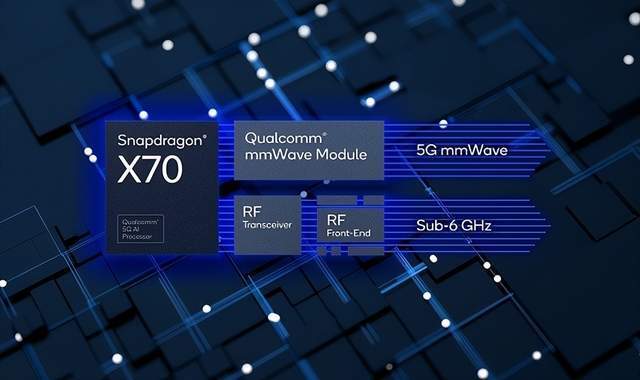IPQ9570 with QCN6274 in a 4x4 Wi-Fi 7 Configuration Exploring the Performance and Technical Benefits

Exploring the Performance and Technical Benefits of IPQ9570 with QCN6274 in a 4x4 Wi-Fi 7 Configuration
Wi-Fi 7, also known as 802.11be, is set to revolutionize wireless networking with its enhanced performance, efficiency, and capacity. Leveraging advanced technologies, this next-generation standard is designed to meet the increasing demands for higher data rates, lower latency, and better spectrum efficiency. In this context, the combination of the Qualcomm IPQ9570 network processor with the QCN6274 4x4 MU-MIMO transceiver provides a powerful solution for high-performance Wi-Fi 7 applications, particularly in the 5 GHz band.
Overview of IPQ9570 and QCN6274
IPQ9570 Network Processor:
Architecture: ARM-based multi-core CPU
Frequency: Typically operates at high frequencies for robust processing capabilities
Networking: Advanced networking features including support for high-speed Ethernet interfaces
Security: Enhanced security features for secure data transmission
Efficiency: Designed for power efficiency to support long-term operation in various environments
QCN6274 Wi-Fi 7 Transceiver:
MU-MIMO: Supports 4x4 multi-user, multiple-input, multiple-output (MU-MIMO) technology
Frequency Bands: Operates in the 5 GHz band with potential for 6 GHz support
Channel Width: Supports wider channel bandwidths (up to 320 MHz) for increased data throughput
Modulation: Higher-order modulation schemes (up to 4096-QAM) for improved spectral efficiency
OFDMA: Orthogonal Frequency Division Multiple Access for efficient spectrum utilization
Performance and Technical Benefits
Enhanced Data Rates:
The combination of IPQ9570 and QCN6274 can achieve significantly higher data rates, thanks to the support for wider channel bandwidths (up to 320 MHz) and higher-order modulation schemes (up to 4096-QAM). This enables the transceiver to transmit more data within the same spectrum, providing faster and more reliable connections.
Increased Capacity:
The 4x4 MU-MIMO capability of the QCN6274 allows simultaneous data transmission to multiple devices, improving overall network capacity and efficiency. This is particularly beneficial in environments with many connected devices, such as offices, public spaces, and smart homes.
Reduced Latency:
Wi-Fi 7 introduces features like multi-link operation (MLO) and coordinated OFDMA, which help reduce latency by allowing multiple links to be used simultaneously and coordinating the use of spectrum among devices. This results in smoother, more responsive experiences for latency-sensitive applications like online gaming, video conferencing, and augmented reality.
Improved Spectral Efficiency:
The use of advanced technologies like OFDMA and higher-order modulation enhances spectral efficiency, allowing more data to be transmitted in the same bandwidth. This helps to mitigate congestion in densely populated areas and ensures better performance even in challenging environments.
Better Range and Coverage:
The IPQ9570 processor’s robust processing power, combined with the QCN6274 transceiver’s advanced beamforming capabilities, helps extend the range and coverage of the Wi-Fi network. This ensures strong and stable connections even at greater distances from the access point.
Enhanced Security:
The IPQ9570’s advanced security features, such as support for WPA3 and secure boot, provide enhanced protection against cyber threats. This ensures that the data transmitted over the network is secure, safeguarding user privacy and sensitive information.
Power Efficiency:
Both the IPQ9570 and QCN6274 are designed with power efficiency in mind, making them suitable for use in battery-powered devices and reducing overall power consumption in larger deployments. This contributes to lower operational costs and longer device lifespans.
Practical Applications
The combination of IPQ9570 and QCN6274 is well-suited for a variety of high-performance applications, including:
Enterprise Networks: Providing robust and high-capacity wireless connectivity for large office environments.
Smart Homes: Supporting multiple IoT devices, streaming services, and smart home applications simultaneously.
Public Wi-Fi: Ensuring reliable and fast internet access in public spaces such as airports, malls, and stadiums.
Industrial IoT: Enabling real-time communication and control in industrial settings, enhancing productivity and safety.
Conclusion
The integration of Qualcomm’s IPQ9570 network processor with the QCN6274 4x4 MU-MIMO transceiver represents a significant advancement in Wi-Fi technology. With the enhanced capabilities of Wi-Fi 7, this combination offers substantial improvements in data rates, capacity, latency, spectral efficiency, range, and security. These benefits make it an ideal solution for a wide range of demanding applications, from enterprise networks to smart homes and beyond. As Wi-Fi 7 continues to evolve, the IPQ9570 and QCN6274 will play a crucial role in shaping the future of wireless connectivity.








评论